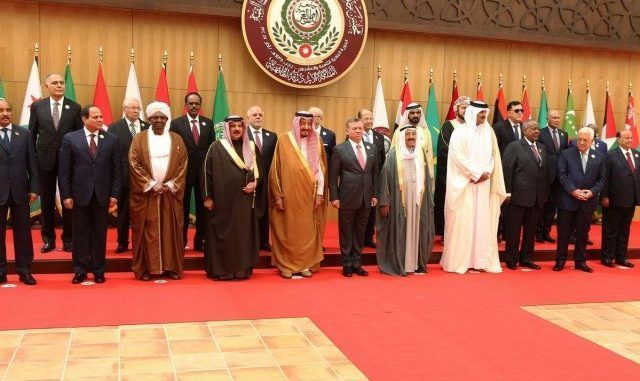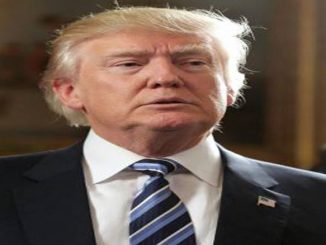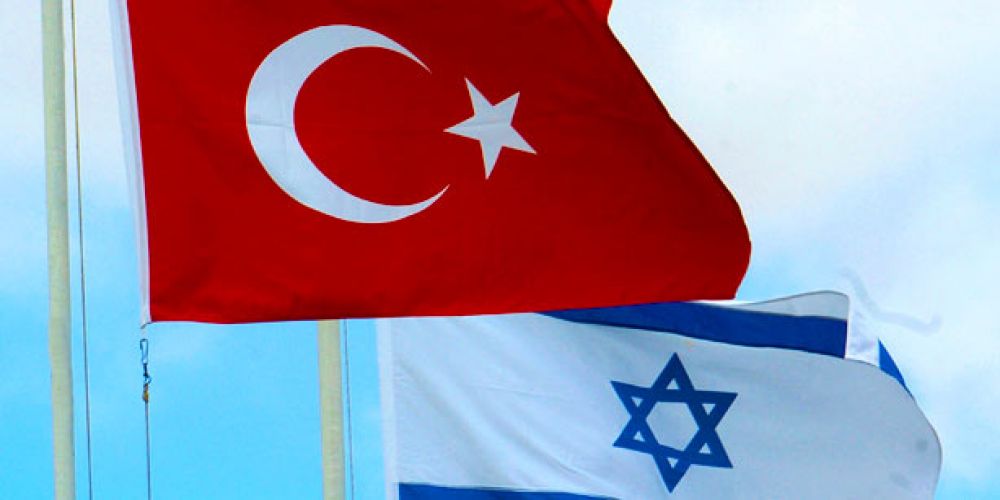
Saudi King Salman bin Abdelaziz concluded the 29th Arab League Summit in Dhahran at the King Abdelaziz International Cultural Center. Although the Arab League Summit was named “Jerusalem Summit”, however, Arab nations are pessimistic that their leaders would spark any action.
Arab leaders at a summit in Saudi Arabia have slammed Washington’s decision to recognize Jerusalem as Israel’s capital and move its embassy there, but analysts say their words are unlikely to lead to action.
The shift by US President Donald Trump has sparked deep anger across the Arab world, particularly among Palestinians, who see East Jerusalem as the capital of their future state.
But it seemed clear at the Arab League summit, held in the eastern city of Dhahran in the beginning of this week, that regional rulers, particularly in the Gulf, are unwilling to jeopardize close ties with Trump as they seek to counter Iran.
In this context, Denis Bauchard, an expert from the French Institute on International Relations said, “Generally, Arab League summits produce more rhetoric than action.” He added, “I don’t think this will go beyond declarations.”
For Riyadh, he said, “what is essential is the relationship with Washington”.
Israel occupied mainly Palestinian east Jerusalem and the surrounding region in 1967 and later captured it, declaring the city its capital.
Neither move was recognized by the international community – but the United States is now set to shift its embassy from Tel Aviv to Jerusalem in May.
Nour Odeh, a Palestinian political analyst, said Palestinians had low expectations for any Arab response.
“Ordinary people and politicians alike understand the dismal state of Arab affairs, and no Arab government is going to confront Trump,” she said.
Saudi King Salman dubbed the Dhahran conference the “Jerusalem summit” and used his opening speech to denounce Washington’s decision and announce a $150 million donation for the maintenance of Islamic heritage in the eastern part of the holy city.
Other leaders queued up to add their criticism, and the summit’s final statement also slammed Trump’s move.
But an Arab diplomat, who asked to remain anonymous, said that “even Washington’s allies (Riyadh, Abu Dhabi, and Cairo) know very well that they don’t have many diplomatic options”.
The Trump administration, the diplomat said, “Their aim is to improve the situation of the Palestinians as much as possible, but they won’t go as far as confronting.”
Ghassan Khatib, a Palestinian academic and former minister, said they were “not capable” of doing so, “especially with all the problems in the Arab world”.
He said Arab governments were “not willing to risk their relationships with the United States.”
‘Concerned the Iranian Issue’
The American decision on Jerusalem comes as ties warm between the US and key allies in the region – Saudi Arabia, Egypt and the United Arab Emirates.
That follows years of tension under former president Barack Obama as Washington improved ties with Iran, culminating in a historic 2015 deal to lift sanctions in exchange for curbs on Tehran’s nuclear programme.
Saudi Arabia and Iran have spent years fighting proxy wars across the region, from Syria to Yemen.
However, Trump has now openly backed Riyadh and threatened to back out of the Iran nuclear accord – possibly also in May.
Khalil Harb, editor of Journal, an Arabic-language website focusing on Gulf affairs, “Saudi Arabia and the UAE… have felt since the nuclear deal with Iran that Washington was not taking into account their concerns about Iran’s strong presence in the region.”
The two countries are now trying “to push the Trump administration… to review the American position on the nuclear deal. At a political moment like this, Riyadh doesn’t want to embarrass or anger America,” he said.
Karim Bitar, from the Paris-based Institute of International and Strategic Affairs, said those states are “so concerned with the Iranian threat that they realize that they might have to coordinate the anti-Iranian effort with the US and Israel.”
Peace with Israel?
Amid the controversy surrounding Trump’s decision on Jerusalem, observers have said the move could spark renewed violence in the region.
But there have been growing signs of a diplomatic opening between Saudi Arabia and Israel.
During a US tour day before the summit, Saudi Arabia’s powerful Crown Prince Mohammed bin Salman, the 32-year-old son of the king and heir to the Saudi kingdom, said that Israel also had a right to its own land.
King Salman called Trump hours later to reaffirm the kingdom’s support for “the legitimate rights of the Palestinian people to establish their own independent state with its capital in Jerusalem”.
Shortly before the summit, Saudi daily newspaper Al-Riyadh published an editorial entitled “Dhahran summit: peace with Israel and confrontation with Iran”.
It argued that “the Arabs must realize that Iran is more dangerous to them than Israel.”
In an unprecedented statement for Saudi newspaper, it said: “The Arabs have no other option than reconciliation with Israel, signing a comprehensive peace agreement and freeing themselves up to tackle the Iranian project in the region.”
Moreover, overlooked by many is the fact that other Arab leaders also quietly support his Trump’s plan for the region, even though Palestinian leadership has loudly condemned that plan, whatever shape it may eventually take.
Along with Saudi Arabia, the United Arab Emirates, Egypt and Jordan — appear committed to at least tacitly supporting Trump’s plan.
Trump has isolated Abbas from his fellow Arab leaders, and the Palestinian president fears that he could be pushed out by Washington — with the tacit approval of Trump’s Arab coalition — and replaced by Mohammad Dahlan, the former leader of Fatah in Gaza, in the event that Abbas rejects Trump’s peace plan.
What is clear, however, is that Trump’s aptitude for political theater has unnerved the Palestinians, which explains why Abbas once again rejected the U.S. peace plan at the Arab League Summit in Dhahran on Sunday even if no details have yet been released.
It seems that UAE and Egypt, increasingly see Iran and the crisis in Syria, much more than the Palestinian issue, as an existential threat.
There is no doubt that for Arab leaders political posturing in the public and private policy objectives are two very different things.
King Salman of Saudi Arabia declared during his inaugural remarks, “The Palestinian issue will remain our top issue until all Palestinians get their legal right to establish an independent state with Jerusalem as its capital.”
But the Arab leaders, except for Palestinian President Mahmoud Abbas, were careful not to criticize U.S. President Donald Trump’s forthcoming peace plan.
Adding to Palestinian anxiety is the fact that Trump has successfully maintained the alliance with Riyadh, Abu Dhabi and Cairo on issues pertaining to regional cooperation, including on the Israeli-Palestinian front, while narrowing differences with Jordan on the Jerusalem issue.
King Abdullah of Jordan, along with Abbas, were the two Arab leaders to initially publicly reject Trump’s Jerusalem announcement. However, King Abdullah’s stance has obviously shifted during the Summit.
Sigurd Neubauer is a columnist and Middle East analyst based in Washington said, “Abdullah’s position on Trump’s peace plan has evolved was evident during the Dhahran summit, as he no longer criticized the Jerusalem issue but instead provided conciliatory rhetoric towards the Palestinian cause.”
He added, “All things considered, Sunday’s Arab Summit was not a hurdle for Trump’s quest to impose a peace plan on Israeli-Palestine, but a sign of just how persistent the regional alliance between the United States and its long-time Arab partners really is.”



